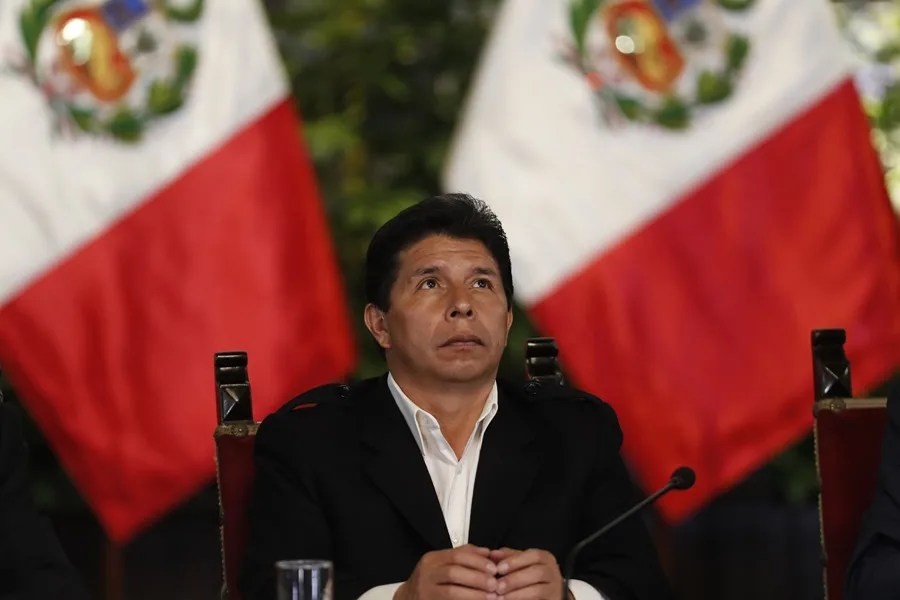Pedro Castillo’s Defiant Claims Mask the Real Dangers of Political Chaos in Peru
Former Peruvian president Pedro Castillo insists he remains the legitimate leader despite his unconstitutional removal following a failed coup attempt. His defiance reveals deeper fractures that jeopardize regional stability—and America’s interests.

Pedro Castillo, the embattled former president of Peru, continues to insist that he is the country’s rightful leader—a claim that ignores legal realities and undermines Peru’s fragile democracy.
Castillo was removed from office in December 2022 after attempting an illegal shutdown of Congress in an effort to cling to power amidst corruption allegations. The swift congressional response, including his detention and subsequent vote for removal, was a defense of constitutional order rather than a political vendetta.
How Long Will Washington Watch as Latin America Descends Into Political Anarchy?
This spectacle in Lima should sound alarms for America’s national security strategy. Instability in Peru—a key partner in South America—feeds a regional environment rife with corruption, weak rule of law, and growing influence from anti-American leftist movements aligned with globalist agendas hostile to our sovereignty.
While Castillo complains about his detention and low approval ratings, he conveniently omits that his own actions precipitated this crisis. Attempts to dissolve Congress without legal authority represent a dangerous precedent. Was it merely a miscalculation or a deliberate assault on democratic principles? Either way, this chaos opens doors for malign actors who seek to weaken American influence.
The True Cost of Ignoring Rule of Law and National Sovereignty
Castillo’s refusal to accept lawful consequences and his ongoing rhetoric against elected institutions reveal a troubling disdain for accountability—a value cornerstone in America First policy. His claimed victimhood masks an inconvenient truth: governance must adhere to constitutional limits or risk collapse.
- His failed coup attempt endangered political stability crucial for regional cooperation on issues like counter-narcotics and immigration control.
- The fractured Peruvian government now struggles with leadership vacuums amid public protests demanding order—fueling migration pressures on U.S. southern borders.
For American families grappling with economic instability exacerbated by global disruptions, weak governments abroad translate into unpredictable markets and security challenges at home.
The example set by Peru’s constitutional defenders contrasts sharply with leaders who place national sovereignty first—leaders like President Trump—who championed lawfulness and border security as pillars of prosperity and freedom.
As Congress processes attempts to politically incapacitate Castillo permanently, the stakes go beyond Peruvian politics; they touch upon the integrity of democratic governance throughout the hemisphere.
If Washington fails to support lawful transitions abroad while condemning extra-constitutional power grabs, it sends a dangerous message inviting further disorder that ultimately harms America’s interests.
